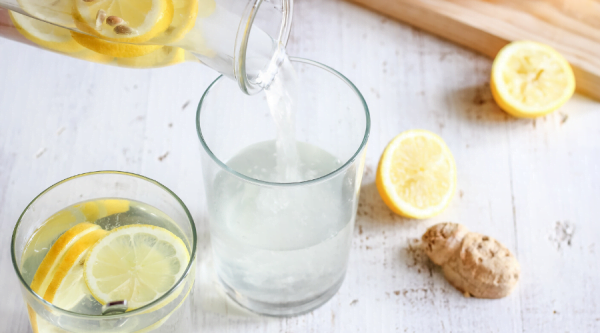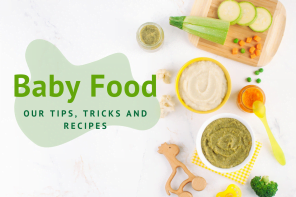Used throughout the day, the digestive system is in constant communication with the brain. In fact, since the intestine has 200 million neurons, it’s considered our second brain. Just one more reason to acquire better digestion and to take care of your digestive health.
Who hasn’t had digestive discomfort, bloating or other undesirable goings on?
But there’s good news. We’ve done our homework to get you the top 5 tips for better digestion.
Add food that’s rich in fibre:
Dietary fibre isn’t digested or absorbed like carbohydrates, proteins and fats. But it does play an important role in digestion. There are 2 types: insoluble and soluble fibre.
Fibre (insoluble and soluble)
Insoluble: It speeds up food’s transit time, helps control appetite and weight, and promotes good digestive health. You can find it in the skins of fruits and vegetables, vegetables, some legumes such as kidney beans, as well as in seeds and leaves. It’s recommended for constipation.
Where to find insoluble fibre:
In the skins of fruits and vegetables, seeds, leaves, roots, etc.
Soluble: When it comes into contact with water and lipids, soluble fibre helps eliminate residues. And because of it, the body doesn’t absorb fats, cholesterol or carbohydrates easily. As well as guaranteeing good digestive comfort, it helps slow down the rise in blood sugar levels.
Gentler on the intestine, soluble fibre helps balance intestinal flora while slowing the feeling of fullness. It’s also recommended for diarrhea.
Where to find soluble fibre:
in legumes, oatmeal, flax seeds, etc.
If your diet isn’t rich in fibre, you could improve your habits by finding alternatives and gradually increasing your fibre intake. You could eat brown rice instead of white, for example
Be active:
It’s been proven that sports have a positive impact on health.
They’re good for heart health and stress relief, as well as digestion.
In fact, physical activity can boost blood circulation and intestinal muscle contraction. Feeling reactivated, the intestine will then have an easier time absorbing nutrients.
Did you know?
Working your abdominal muscles contributes to good digestive function?
It improves bowel movements.
Here are a few tips to slowly increase your daily activity:
- Get off the bus or metro before your stop
- Remember to get up, get a drink of water or use the washroom every hour
- Take the stairs instead of the elevator
- Find a sport that you really like and just do it
Limit fatty and processed foods:
There are 2 kinds of fat: HDL (high-density lipoprotein) or “good” cholesterol and LDL (low-density lipoprotein), “bad” cholesterol. Both are necessary and present in food, but you should limit bad cholesterol. It’s found mainly in high-fat foods.
These foods increase the gastrocolic reflex. The purpose of the gastrocolic reflex is to signal the large intestine to eliminate existing waste. Even if it’s natural, very fatty meals accentuate this reflex and can cause digestive problems.
In addition to high-fat foods, highly-processed foods such as sweets, soft drinks, ice cream and chicken nuggets, also cause digestive problems.
Sugars and fat are present in most of them and generally, food additives like glucose, salt and artificial products, are often added. These additions can contribute to bowel discomfort, as well as affect heart health.
How to spot products that are too fat and avoid eating them?
1 tablespoon of olive oil in a salad, 2 tablespoons of 15% cream in a soup and you’ve reached the recommended fat intake for the day.
Here are a few tips to recognize and avoid products that are rich in fat:
At the grocery store
- Try as much as possible to consume raw or minimally processed products such as vegetables, legumes, nuts, eggs, etc.
- Get into the habit of reading labels to see what products are made of. If a product contains more than 15% fat (15 g per 100 g), it’s considered fat. Read this article to learn how to decipher a nutrition label.
At home
- Cook at home as much as possible without using highly-processed ingredients
- Eat meals at set times
Consider probiotics:
What are probiotics?
The term probiotics comes from the Latin probiota which means “for life”. Naturally present in the intestines, these micro-organisms effectively maintain life in your intestines by keeping the intestinal flora balanced.
Benefits of probiotics
They produce vitamins, aid digestion and strengthen the immune system. Therefore, they provide a considerable advantage against some diseases.
Useful in a high-fat diet, probiotics also help restore intestinal flora after gastroenteritis if you’re on medication.
Foods with high levels of probiotics
Over-processed food has low levels of natural probiotics because of the cooking or heating during processing.
Here’s a list of food with high levels of natural probiotics :
- Fermented milk (ex., kefir, lait ribot which is a French-style buttermilk)
- Plain yoghurt
- Onions
- Sauerkraut
- Garlic
- Artichokes
- Beet or carrot juice
- Sourdough bread
- Kombucha
- Miso soup
Drink lots of water:
Why does drinking a lot of water help digestion?
To keep your digestive system active and healthy, drinking 8 to 10 glasses of water a day can be essential to improving health and digestion.
From saliva to urine, it’s present in all stages of digestion and facilitates digestive activity by dissolving soluble dietary fibre, among other things.
Tricks to drinking more water:
Healthy fluids are important for good digestive activity. But it can be tricky to drink enough water during the day. Here are a few tricks to adding water to your day :
If you don’t think about it:
- Start and finish every day with a glass of water
- Always keep a clear water bottle in plain view
- Download an app to remind you to hydrate (Drink Water Reminder N Tracker, Water Drink Reminder)
If you’re not crazy about water
- Squirt some sugar-free lemon juice into your water
- Try natural sparkling water
- Invent your own recipes that infuse water with real fruit like apples, strawberries or frozen fruit
- Eat fruits and veggies that have a high water content (think cucumbers, spinach and sweet peppers)
- Consider sugar-free and herbal teas as alternatives
To sum up, digestion plays an important role in your day. Take the time to eat, drink water (think of soups as main meals that combine meals with hydration) and be active. Remember to eat eat regularly and properly.
To help you do this, we’ve prepared a special digestive health grocery list below. Have fun and let us know what you’ve added!












